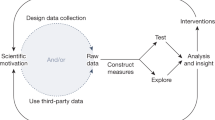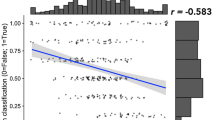Abstract
ON the rare occasions when I dip into some book on one of the non-quantitative sciences, such as those which deal with folk-lore, analysis of literary documents, or the human unconscious, I am puzzled and a little scandalised by a canon of logic which appears to be very freely adopted in these branches of thought. It consists in the use of the following argument: “It is possible to work out an analogy between A and B. Therefore A must be the cause of B, or vice versa”. This canon used to be used very freely in the interpretation of sacred writings, and especially of prophecy, but it seems now to have passed over intact into the sciences I have mentioned above.
This is a preview of subscription content, access via your institution
Access options
Subscribe to this journal
Receive 51 print issues and online access
$199.00 per year
only $3.90 per issue
Buy this article
- Purchase on Springer Link
- Instant access to full article PDF
Prices may be subject to local taxes which are calculated during checkout
Similar content being viewed by others
Author information
Authors and Affiliations
Rights and permissions
About this article
Cite this article
HUME, C. The Methodology of the Inexact Sciences. Nature 123, 129–130 (1929). https://doi.org/10.1038/123129b0
Issue Date:
DOI: https://doi.org/10.1038/123129b0
Comments
By submitting a comment you agree to abide by our Terms and Community Guidelines. If you find something abusive or that does not comply with our terms or guidelines please flag it as inappropriate.



